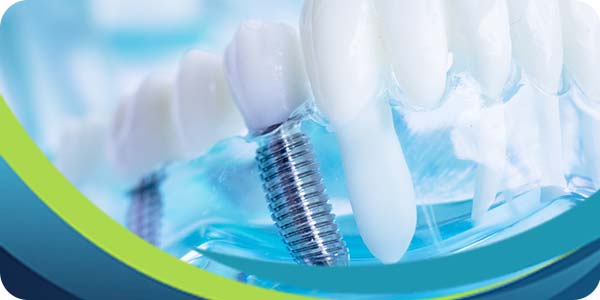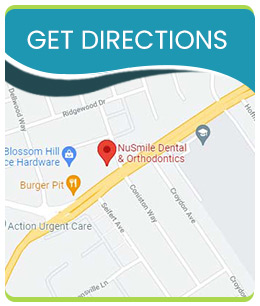Home » San Jose CA Root Canal vs. Single Tooth Implant
You cannot copy content of this website, your IP is being recorded
Root Canal vs. Single Tooth Implant: Which One Is Prescribed by a Dental Specialist?
Root canal treatment and dental implants are both solutions for severe tooth decay. A root canal saves natural teeth by treating damaged pulp, and a single tooth implant replaces lost or severely damaged teeth with a prosthetic tooth root and crown. Visit NuSmile Dental & Orthodontics for personalized recommendations from our dental specialist, Dr. Lawrence Wu, DDS, and the team. For more information, please contact us or schedule an appointment online. We are conveniently located at 1319 Blossom Hill Rd, San Jose, CA 95118.
Additional Services You May Need
*For any medical procedure, patients respond to treatment differently, hence each patient’s results may vary.
**In case of a life threatening emergency, immediately call 911.
***Information on this site is not intended or implied to be a substitute for professional medical advice, diagnosis or treatment. All content contained on or available through this site is for general information purposes only.
****By using this website and sending us your information, you are giving us permission to contact you by electronic and non-electronic means. We also track the conversions and collect user data to improve marketing.
*****If you are vision-impaired or have some other impairment covered by the Americans with Disabilities Act or a similar law, and you wish to discuss potential accommodations related to using this website, please contact us.








